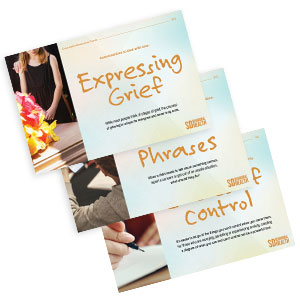The important role teachers play in their students' mental health
Educators are in a unique position to support students' mental health. These professionals spend enough time with their students to recognize when their behaviors are developmentally appropriate, and which ones may be cause for concern.

For that reason, the Department of Education (DOE) provides resources for teachers to help them support students, whether it be through prevention of mental health issues or referral to a school-based mental health professional when students need more support. "Teachers are often the first to recognize mental health concerns in their students because they're around them every day," said Andrea Effling, a school counseling and student support administrator with the DOE.
One of the factors that helps build resiliency – a component of mental wellness -- is having a positive relationship with a trusted adult, and educators can serve that role. Educators are often the first line of defense in helping students feel safe and valued.
"One thing we often hear is a need to help students develop coping skills and strategies to help themselves," said Effling. "The DOE's mental health poster campaign gives people awareness of how to get help when they need it, but they also provide coping skills and strategies to help them regulate themselves."
Beyond prevention, teachers also can see warning signs of when a student may be in or near a mental health crisis. "Because they know students so well and they have those relationships built, when they recognize behavior that is out of the norm for a particular student, it's important that they refer that student to get more help," said Effling.
Usually, that referral will be made to a school counselor or school social worker. But when those options are not available, teachers can also reach out to an administrator to get help for the student as soon as possible.
For educators who would like more training on crisis prevention and response in schools, South Dakota School Crisis Prevention & Response Hub, a partnership between the University of South Dakota and the South Dakota Department of Social Services, Division of Behavioral Health, is offering professional development through a virtual speaker series. This series, with titles such as "ACES and What it Means for Educators" and "Schools that Thrive: Creating a Culture of Trust, Accountability, and Growth," is available to all educators across the state as well as anyone who serves school-aged youth. The sessions are 45-70 minutes in length and can be viewed at any time. The series will be available through June 30, 2025; continuing education contact hours will be available to those who participate.

SD Behavioral Health has free resources to help those who work with others who are struggling with mental health. These "counselor cards" can help teachers work with students to develop strategies to deal with difficult situations.
SD Behavioral Health, a state agency dedicated to supporting South Dakotans' behavioral health, has resources available for those who want to support others' mental health. The website has information and suggestions for those who need strategies to help, as well as materials such as youth counselor information cards, stickers, pens, and more. Teachers can request free materials online.
"Their website is focused for anyone to use," said Effling. "SD Behavioral Health has so many great resources that anyone can order, at no cost to them. Also, coming soon, there will be resources for teachers specifically that they can use for their students."
